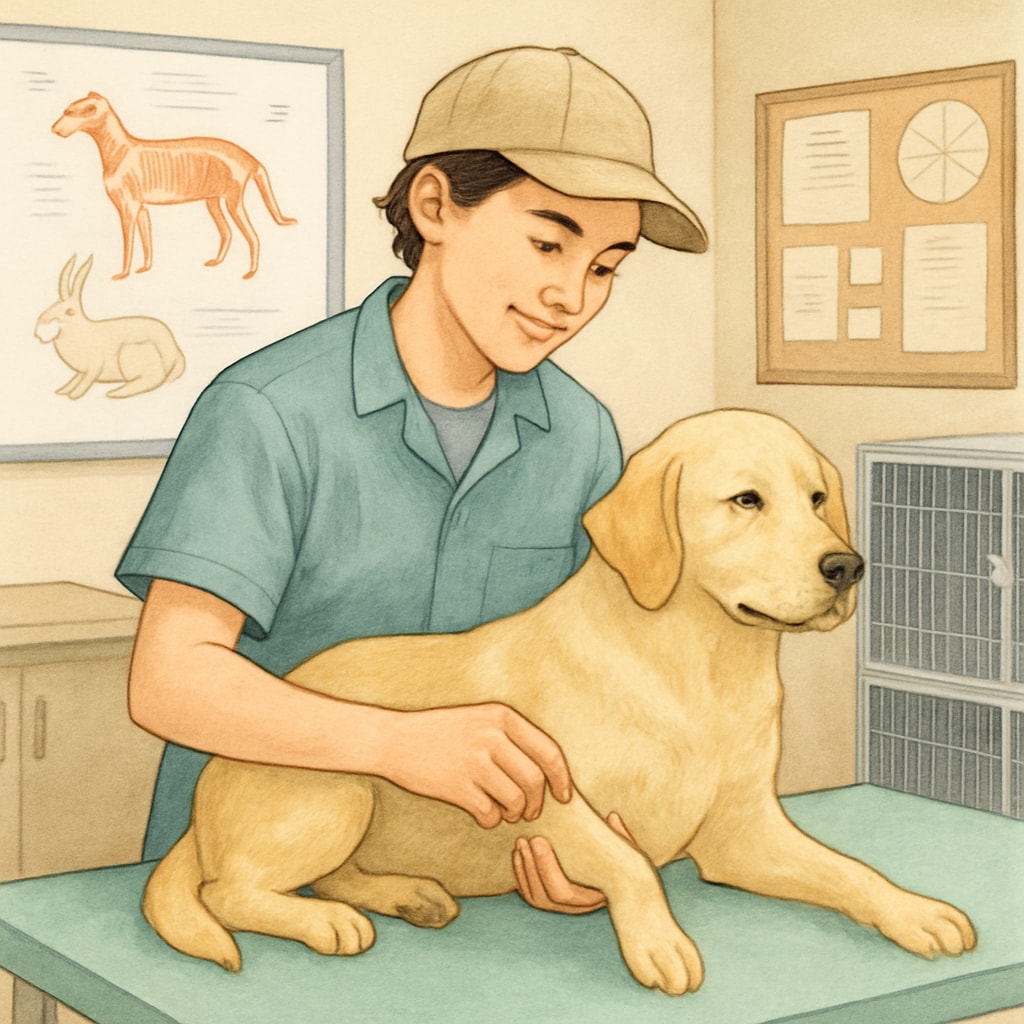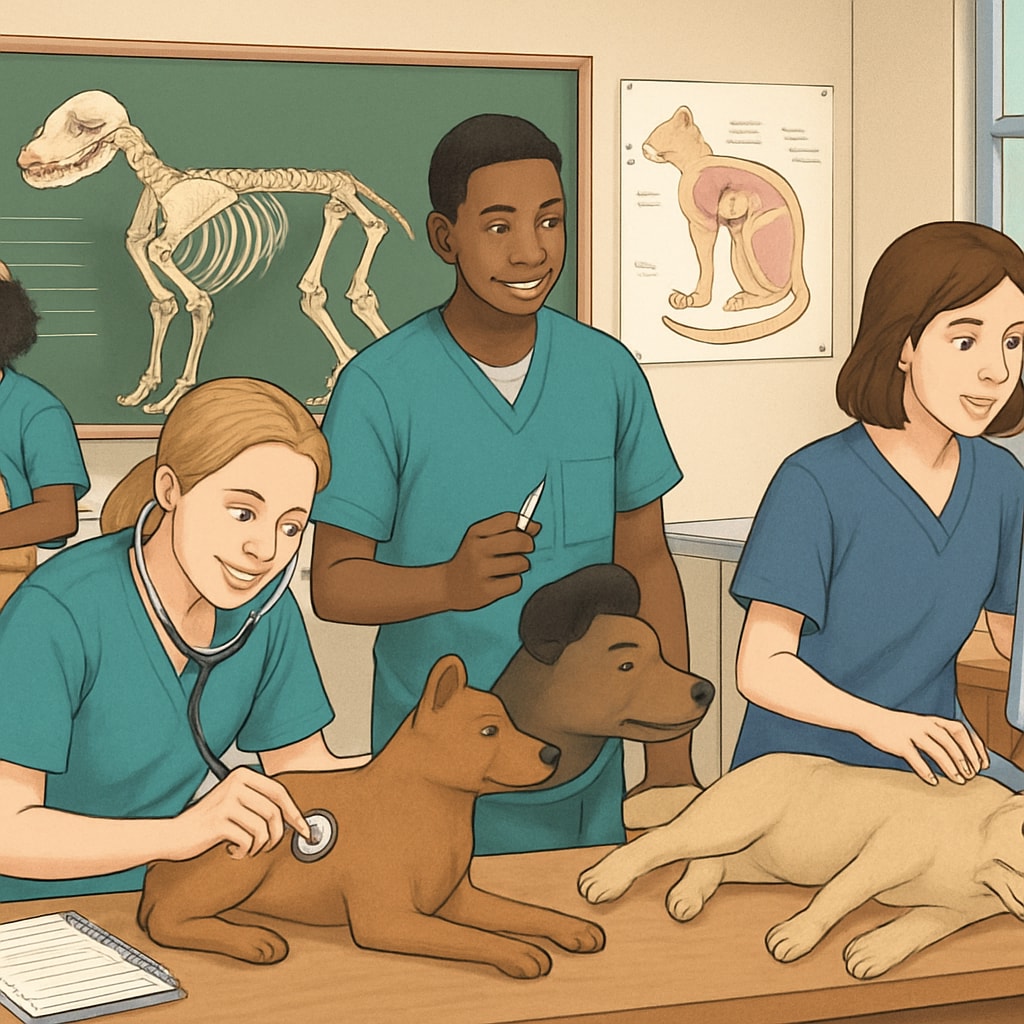For many young individuals, pursuing careers in animal medicine feels like a natural choice due to their passion for animals and interest in science. However, the lack of GCSE certificates can create significant obstacles. GCSE exams (General Certificate of Secondary Education) serve as a foundational qualification for many higher education and vocational paths, but not everyone has the resources or circumstances to obtain them. This article explores the systemic barriers faced by youth without GCSE qualifications and outlines alternative routes to achieve their dream careers in animal medicine.
Understanding the Role of GCSE Qualifications in Animal Medicine Careers
GCSE qualifications are often considered the first step toward entering higher education or vocational training in fields like animal medicine. They typically include essential subjects such as biology and mathematics, which are directly relevant to a career in veterinary sciences or animal care. For individuals who lack these credentials, access to universities or professional programs may seem impossible.
However, it’s important to note that while GCSEs are widely accepted as standard prerequisites, there are alternative pathways that can open doors. Understanding these options is crucial for anyone facing financial, educational, or personal challenges that prevent them from obtaining traditional qualifications.

Alternative Pathways to Enter Animal Medicine Careers
For those passionate about animal medicine but lacking GCSE certificates, several alternative methods exist:
- Vocational Training Programs: Many institutions offer specialized vocational programs in animal care and veterinary assistance that do not require GCSEs. These programs focus on practical skills and hands-on experience, making them ideal for those ready to jump into the workforce.
- Apprenticeships: Apprenticeships provide an excellent way to gain relevant experience while earning qualifications. Organizations in the animal care sector often hire apprentices and provide on-the-job training.
- Access Courses: Some colleges offer access courses designed to prepare students for higher education. These courses often waive traditional GCSE requirements and focus on foundational knowledge relevant to the chosen field.
- Online Certifications: Platforms like Coursera and Udemy offer online courses in animal care, veterinary sciences, and related fields. While these may not replace formal qualifications, they can help build a strong knowledge base and enhance employability.
By exploring these options, aspiring professionals can bypass traditional educational barriers and focus on developing the skills needed for their dream careers.

Overcoming Financial and Educational Challenges
One of the biggest challenges faced by individuals without GCSE qualifications is financial strain. Many traditional education paths are expensive and inaccessible to those with limited resources. Here are some strategies to mitigate these challenges:
- Seek Scholarships: Some organizations provide financial aid to individuals pursuing careers in animal medicine. Researching scholarship opportunities can reduce educational costs.
- Work-Study Models: Some vocational training programs allow students to work part-time while studying. This model combines education with financial independence.
- Government Support: In many regions, government programs offer subsidized education for vocational training. Checking with local education offices can reveal opportunities.
These strategies can help bridge the gap for students who are determined to succeed despite financial difficulties.
Building a Strong Foundation Without GCSEs
Even without GCSE qualifications, developing a strong foundation in relevant subjects like biology, anatomy, and animal behavior is essential. Here are practical tips to build expertise:
- Volunteer Opportunities: Working with local animal shelters or veterinary clinics can provide invaluable experience and insight into the field.
- Self-Directed Learning: Books, online resources, and free educational platforms can help individuals learn fundamental concepts in animal medicine.
- Networking: Connecting with professionals in the field through social media or local events can lead to mentorship opportunities and insider advice.
By actively seeking knowledge and experience, aspiring professionals can demonstrate their commitment to the field, making them attractive candidates for alternative programs and apprenticeships.
Conclusion: Unlocking Opportunities Beyond GCSE Barriers
While GCSE qualifications are a traditional stepping stone for careers in animal medicine, they are not the only pathway. By leveraging vocational training, apprenticeships, access courses, and self-directed learning, passionate individuals can overcome systemic barriers and achieve their career goals. Financial challenges can be mitigated with scholarships and government programs, while volunteering and networking can open doors to valuable opportunities.
For those determined to pursue this rewarding field, the absence of GCSE certificates should not be a deterrent. With resourcefulness and determination, the path to a fulfilling career in animal medicine remains achievable.
Readability guidance: Short paragraphs and lists summarize key strategies. Overuse of jargon is avoided to ensure accessibility for a broad audience. Transition words enhance flow, and long sentences are minimized for clarity.


